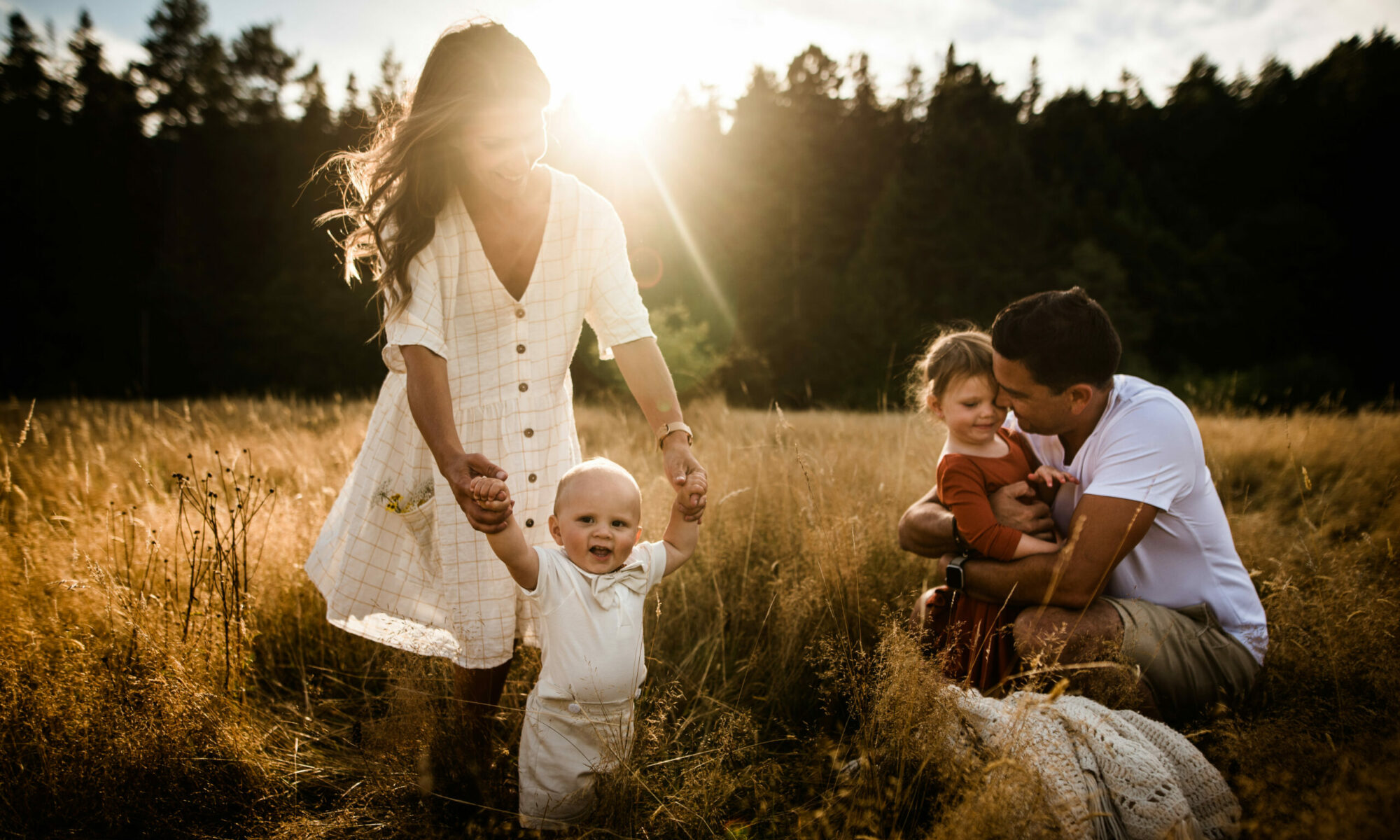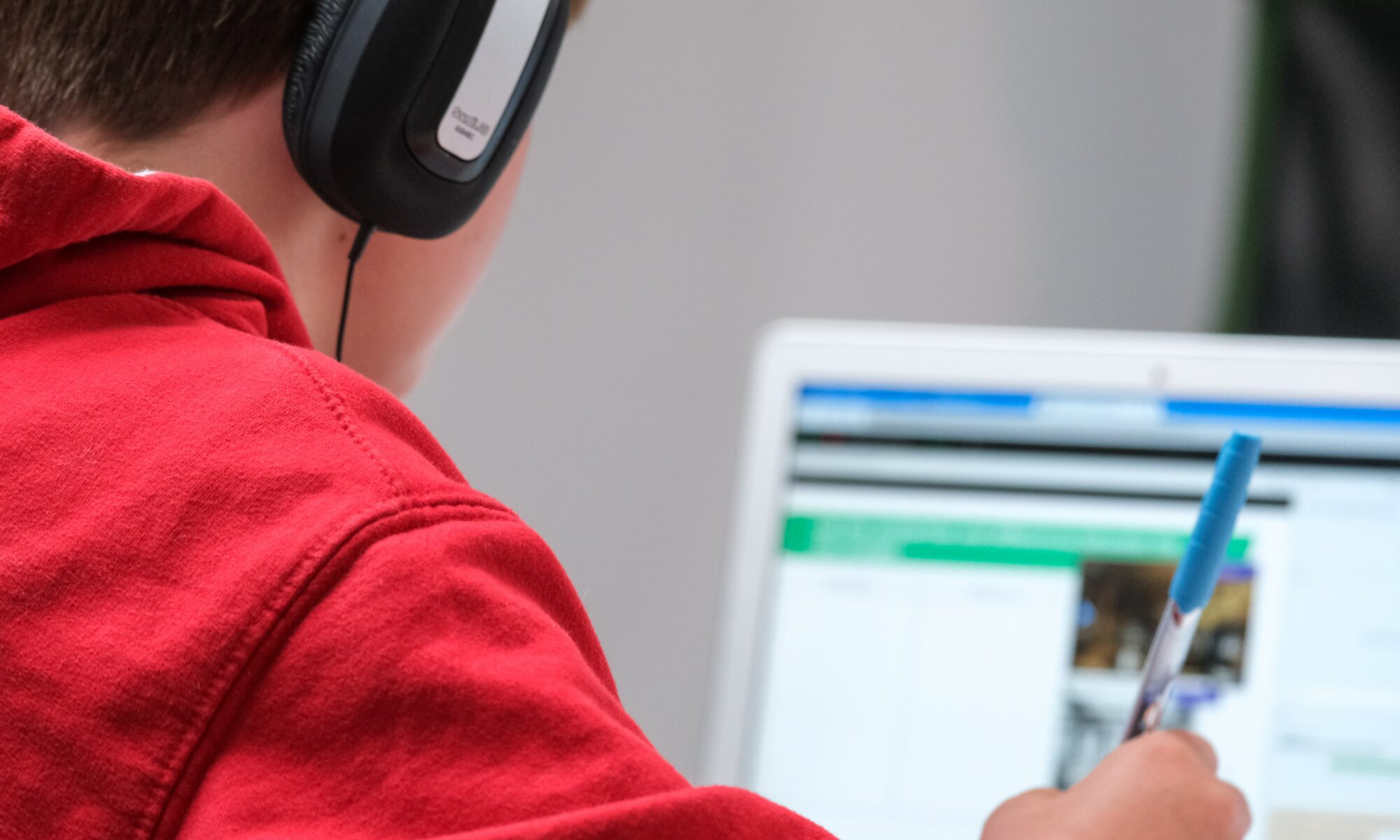Online learning has opened up opportunities in my life which may not have been possible with in-class learning, as well as helped me reach my learning goals in a flexible and personally driven way. Online learning has also made me feel more secure with my online privacy, as I have become more aware of it and been given explanations on how to manage it. This is not to say that there have not been steep learning curves and some difficulties with security which have come with it. However, for the most part, the online learning experience has only acted to enhance many learning opportunities.
I am a mom of two children and am currently on maternity leave. I have been wanting to upgrade my pay and enhance my education for awhile now, but have found previous attempts at going to University while juggling two kids, work and home life extremely difficult since I was never able to attend the times slots offered. Online learning has given me the flexibility to tackle courses and material at my own pace in my own time. I can work on assignments and readings after I put the kids down for the day, or while they are snacking. Online learning felt liberating and I can see how, “the blending of face-to-face provision with online delivery has been one area of significant growth, and [that] it has allowed many “traditional” universities to offer flexible learning opportunities”(Weller, 2020) because I have experienced that flexibility and that growth personally.
Not only is online learning flexible, but it also offers “a curriculum [that can] be offered electronically not just to hundreds of students nearby but to tens of thousands around the world” (Weller, 2020). Therefore, learning is becoming more accessible to everyone all over the world. Furthermore, online learning offers the ability to work with people from all over the world. This has broadened and diversified my PLN (personalized learning network) because it has allowed me to learn from, and learn with, a variety of individuals whom I may never have had the chance in a “traditional” setting. This diversity in my learning network has provided me with diverse insights and life long learning.
All that being said, while attempting to use open learning resources, or creating media for myself or with others, there are so many regulations and privacy issues that come along with it. When I teach, there is the privacy act that we must follow, as well as parental consent for image release etc… There are also limited Apps that we can use . Even in my past course, we needed to use the Open Ed website rather than one of our choice. This presented a couple issues. When in Open Ed, we cannot share it with the public. I was hoping to use my website created for my classroom, but I will need to make another in a separate way. Another issue I ran into was sourcing and confirming where those sources come from. Many times you trust the person who has posted a resource, but they may not be adhering to FIPPA regulations.
After absorbing this weeks readings, I realized that I have never actually heard the term OER (open educational resources). I have possibly used some as an educator, but I have not ever truly known the term or where to find these open resources. I feel like this may be what this course is all about, becoming a creator of learning resources and having the ability to share those ideas freely and openly online, without the restrictions of some e-learning. This would entail learning about privacy and securities, as well as how we would go about creating and sharing in general. I truly hope to learn more about how we can help our learners create learning objects which will enhance their understanding of intended learning materials, as well as to share that said information to educate others. As Weller mentions, “there [is] more to an education than simply the content” (Weller, 2020). I believe the same. I think that once we can produce something for others, collaborate around different ideas and enhance/ remix original ideas, we not only have a solid understanding of the material, but we gain more insight and skill sets which can aid us in becoming life long learners/ educators.
CItation
Weller, M. (2020). Chapter 6 – 1999 E-Learning. 25 Years of Edtech. AU Press. Retrieved from https://read.aupress.ca/read/25-years-of-ed-tech/section/2f403890-5fb5-431a-baf8-876144a4656d#ch06
Weller, M. (2020). Chapter 11 – Open Educational Resources. 25 Years of Edtech. AU Press. Retrieved from https://read.aupress.ca/read/25-years-of-ed-tech/section/ad633722-07b5-494f-80e7-a572f543bc1c#ch11


Hi Jayne,
Thank you for sharing your online learning experience. I can relate to most of what you wrote about this week. While face-to-face learning has many benefits, one of which is a social component that online learning fails to replicate, there are advantages that online learning provides that make it a better option for some people. You detail this by discussing the difficulty of upgrading your education while raising children and working. I have found that the time saved on commutes to the University and ability to do all of my classes from home have made juggling school and family life much easier. Even more so with the asynchronous classes I am in this summer. The ability to do the work at my own pace I find very beneficial.
I appreciate that you detail how you have experienced privacy challenges and limitations on application use while teaching. As well, you bring up a point I had not thought much about in saying “you trust the person who has posted a resource, but they may not be adhering to FIPPA regulations.” This is something I will be aware of going forward with colleagues and even districts and administrators. As it is often hard to know if other people have the same knowledge about FIPPA as we now do. One of the advantages to having open educational resources available is that questionable resources provided by others can be avoided.
Thanks again for your insightful words this week. It is interesting to read others experiences and find where there are commonalities.
Thank you Jason !
Hello Jayne,
I appreciated your personal reflection which connected to the course readings. You highlighted some key points from the readings like, “there [is] more to an education than simply the content” (Weller, 2020). ”
I look forward to how you expand on this idea and others throughout the course….
Thank you for sharing your blog !
Dr R:)
Thank you Verena! Yes, the content is important but soft skills like problem solving, collaborating and innovation are truly where I think we are needing to focus on. The need to inspire change and give autonomy over learning is what will inspire our learners to have innovative thinking and to be resilient in their life long learning journeys. I cannot wait to learn more to expand my thinking 🙂
Hi Jayne,
I’m so glad that online learning has worked for you and your family! It definitely has opened up the world of learning to more people and allowed them to still do all of the things that they have to do (work, family, etc.) while still getting an education. I think this chapter could have made it seem like online learning has changed the world completely by helping everyone who wants to learn to be able to. I think we still have a long way to go in making sure that all people, no matter their life circumstances, have access to these online learning opportunities if they choose before we can be fully satisfied. I believe we will be talking more about this in Topic 4.
I absolutely agree with you about using different online learning resources. I always want to try to bring in new and different resources but with FIPPA regulations on top of district regulations it seems too hard. When we already have so much on our proverbial teacher plates that, for me at least, to properly vet each resource seems impossible and too time consuming. Our students are probably missing out on some pretty amazing learning opportunities because of this. Hopefully, we will feel better equipped to handle this after this course.
~Lisa
Thanks Lisa!